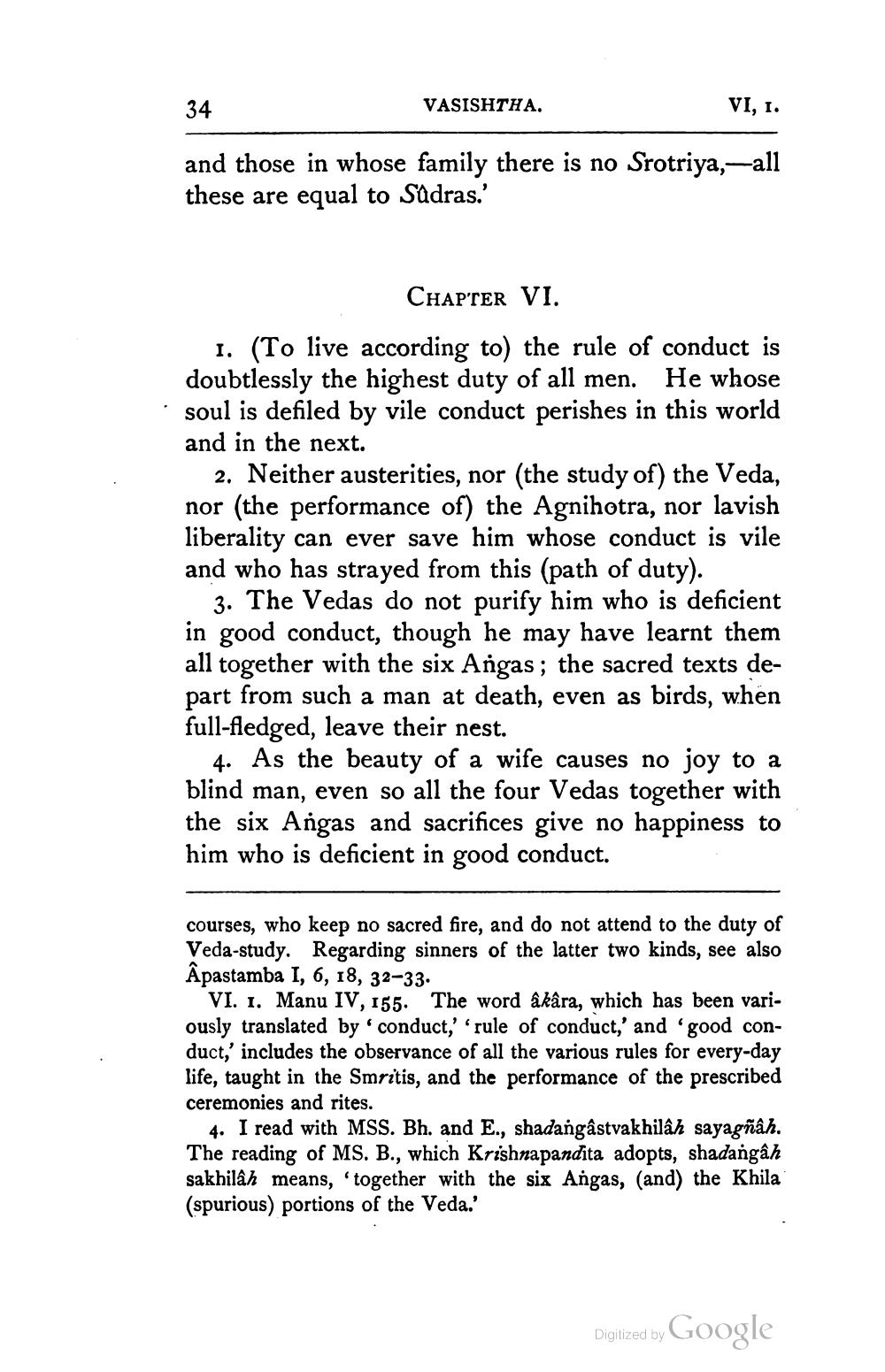________________
34
VASISHTHA.
VI, 1.
and those in whose family there is no Srotriya,_all these are equal to Sadras.'
CHAPTER VI.
1. (To live according to) the rule of conduct is doubtlessly the highest duty of all men. He whose soul is defiled by vile conduct perishes in this world and in the next.
2. Neither austerities, nor (the study of) the Veda, nor (the performance of) the Agnihotra, nor lavish liberality can ever save him whose conduct is vile and who has strayed from this (path of duty).
3. The Vedas do not purify him who is deficient in good conduct, though he may have learnt them all together with the six Angas; the sacred texts depart from such a man at death, even as birds, when full-fledged, leave their nest.
4. As the beauty of a wife causes no joy to a blind man, even so all the four Vedas together with the six Angas and sacrifices give no happiness to him who is deficient in good conduct.
courses, who keep no sacred fire, and do not attend to the duty of Veda-study. Regarding sinners of the latter two kinds, see also Âpastamba I, 6, 18, 32-33.
VI. 1. Manu IV, 155. The word âkâra, which has been variously translated by conduct,' rule of conduct,' and 'good conduct,' includes the observance of all the various rules for every-day life, taught in the Smritis, and the performance of the prescribed ceremonies and rites.
4. I read with MSS. Bh. and E., shadangastvakhilâh saya gñâh. The reading of MS. B., which Krishnapandita adopts, shadangah sakhilâh means, 'together with the six Angas, (and) the Khila (spurious) portions of the Veda.'
Digitized by Google




